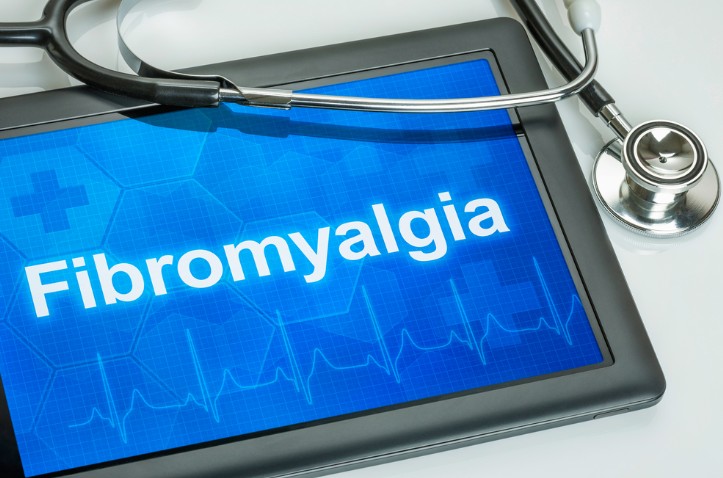Hyperbaric Chamber Treatment for Fibromyalgia Patients
Researchers at Tel Aviv University, in collaboration with a team from Rice University, have proven that fibromyalgia, a disease mainly affecting women, originates in the brain. Until now, there was no effective treatment.

Researchers from Tel Aviv University and several medical centers in Israel, in collaboration with colleagues from Rice University in the U.S., have developed an innovative and effective treatment for fibromyalgia: exposure in a hyperbaric chamber to oxygen-rich air. The new treatment significantly improved the condition of 70% of the patients who participated in the study and could relieve the suffering of millions of women worldwide.
Fibromyalgia is a chronic pain syndrome affecting about 2-4% of the population in the Western world, 90% of whom are women. It is now known that the disease appears primarily in three situations: head injury, infection involving the nervous system, or severe and prolonged mental stress. The source of this debilitating disease had not been identified until now, and therefore the treatments provided to patients only address symptoms, with limited effectiveness. The new research has succeeded in identifying the primary cause of the disease - a disruption in the brain mechanism responsible for processing pain - and, for the first time, offers an effective treatment.
Participants in the study included Dr. Shai Efrati, Director of the Sagol Center for Hyperbaric Medicine at Assaf Harofeh Medical Center, and a faculty member at the Sagol School of Neuroscience at Tel Aviv University; and Prof. Eshel Ben-Jacob, of blessed memory, who was a senior faculty member at the School of Physics and Astronomy and the Sagol School of Neuroscience at Tel Aviv University; Prof. Dan Buskila of Ben Gurion University, an international expert on fibromyalgia; and Dr. Jacob Ablin, head of the Fibromyalgia Clinic at the Department of Rheumatology at Tel Aviv Medical Center (Ichilov).
The research was published in June 2015 in the journal PLOS One.
"Previous studies with the hyperbaric chamber showed that a series of treatments significantly improved the condition of stroke and head injury victims," says Dr. Efrati. "We discovered that administering oxygen under high pressure leads to regeneration and repair of brain tissue damage in these patients, even many years after the injury."

Following the impressive success, the researchers sought to test the method's effectiveness for treating other diseases and injuries, choosing fibromyalgia. The study involved 60 women aged 21-67 who had been diagnosed with fibromyalgia more than two years prior. At the beginning of the study, all participants underwent high-resolution brain mapping to show brain activity using analytical tools developed by the late Prof. Ben-Jacob. The women were then divided into two groups: half received the treatment, and the other half served as a control group.
The women who received treatment came to the hyperbaric chamber at Assaf Harofeh Medical Center five times a week for two months. There, they were exposed to 100% oxygen conditions at two atmospheres pressure (twice the pressure under normal conditions) for an hour and a half each visit. "The result was very encouraging," says Dr. Efrati. "Approximately 70% of the women treated in the hyperbaric chamber improved sufficiently that they could no longer be defined as fibromyalgia patients."
Upon completion of the series of treatments, the participants underwent another brain mapping, which revealed important findings. According to Dr. Efrati: "We found changes in the brain consistent with clinical improvement and accurately identified the brain areas responsible for fibromyalgia. In fact, we located the syndrome's source and proved that fibromyalgia is essentially a disorder in the brain's pain processing mechanism. The hyperbaric chamber treatment addresses the root of the problem by repairing the damaged brain tissue, which is why it is so effective. In the future, we may even diagnose fibromyalgia based on visible characteristics in the brain mapping."
The researchers are now continuing with a comprehensive research project on the regeneration of brain tissues under hyperbaric chamber conditions. Their next study will involve patients with mild cognitive impairment, which may be the onset of dementia. "We believe that hyperbaric chamber treatment has great potential as a therapeutic tool for various diseases and injuries related to the brain," said Prof. Ben-Jacob, of blessed memory. "As known, such problems can occur in older age due to the decreased efficiency of blood flow carrying oxygen to and within the brain. Therefore, it is quite possible that the new treatment could help people in the early stages of dementia or Alzheimer's and prevent the disease's progression. Maybe, in the future, we could even offer the brain 'anti-aging' treatments that would strengthen it and preserve its functionality until our last day."

